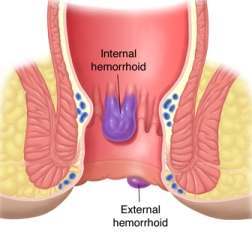Hemorrhoids Treatments for Itching
 If you are one of the millions of people who suffer from hemorrhoids, also commonly known as hemroids, you know that itching and burning are two symptoms that typically accompany the condition. What you may not know, however, is that there can be numerous causes of hemorrhoidal itching, and the best treatment method for the condition may vary by this underlying cause.
If you are one of the millions of people who suffer from hemorrhoids, also commonly known as hemroids, you know that itching and burning are two symptoms that typically accompany the condition. What you may not know, however, is that there can be numerous causes of hemorrhoidal itching, and the best treatment method for the condition may vary by this underlying cause.
Causes of Itching
With external hemorrhoids, the itching that accompanies the condition is usually due to the proximity of a band of nerves in the anal area which is affected by the hemorrhoidal tissue. Additionally, due to their location, external hemorrhoids are more likely to be irritated by scratching or scrubbing in the area than internal hemroids. Too vigorous wiping or scrubbing during bathing can cause the natural oils found in the skin near the anus to be stripped away, thus removing the skin’s own innate lubricant. The results can be dryness, chafing and itching. Additionally, the removal of the body’s naturally protective oils on the skin can make it more vulnerable to surface infections. The result is a vicious circle where irritation leads to scratching and scrubbing which leads to further irritation.
External hemorrhoids are not the only hemroids that are subject to itching, however. Internal hemorrhoids can also manifest this particular symptom. With internal hemorrhoids, the cause lies in the inflammation that accompanies the condition. When inflammation occurs in the body, the blood vessels swell and lymph fluid fills intercellular spaces. Immune cells are then dispatched to try to combat the condition. A side effect of all this activity is that itching and discomfort can arise.
Mucus is another leading cause of itching when internal hemorrhoids are present. Internal hemroids can cause additional mucus production in the lining of the anal canal to lubricate and soothe the inflamed mucus membrane there. Some of this mucus can leak out of the anus and settle on the skin around the anal opening, drying there and causing irritation and itching.
Large internal hemroids can also prevent the anal opening from closing completely, thus leading to low-grade fecal incontinence, a condition also referred to as leakage or seepage. When this happens, fecal liquid escapes from the anal opening, settling on the skin in the area and causing irritation and itching.
Treatments for Hemorrhoidal Itching
Treatments for hemorrhoidal itching vary with the type of hemroids involved. External hemorrhoids are often treated with medications in the form of topical creams and ointments. In addition to containing anti-inflammatory ingredients, these medications usually contain some form of anesthetic to ease pain and relieve itching.
Irritation and itching caused by external hemroids may also be treated effectively by use of a mild moisturizer or cream in the affected area. Using unscented toilet paper and patting gently are also recommended to prevent further irritation of the skin.
For internal hemroids, oral medications such as ibuprofen are generally effective at relieving symptoms of itching, since they serve as both anti-inflammatories and painkillers.
Finally, Sitz baths using plain warm water have proven very effective in relieving the itching and burning that often accompany hemroids. Wearing loose-fitting underwear made of natural fibers like cotton can also prove less irritating than other materials.